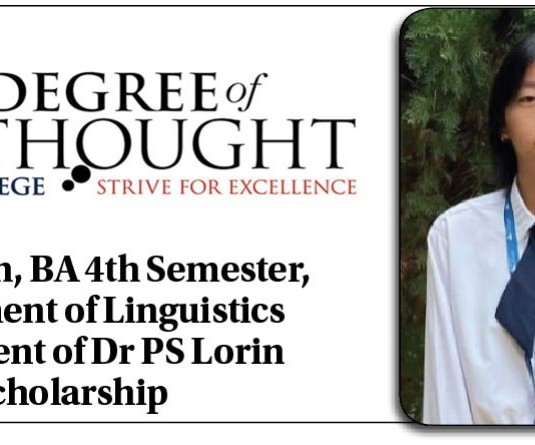
The age old pastime of flipping pages seems long gone. Reading has met its untimely demise. Books are gathering into dust; bookstores are shutting, shops, libraries are being replaced by the internet. For many of us books define our childhood, Harry Potter made you wish Hogwarts were real. Books created a magical world, a world you could disappear into for hours. A world with endless imagination where things could be defined the way you wanted it to be. So why is that world disappearing now, for many reasons but the most notable reason is the digital addiction (an overdose of social media). The proliferation of digital distraction, and the increased fast-paced lifestyle has influenced the decline of reading. Social media has become an important part of young people’s lives nowadays. A new normal, some would say. It plays an important role in all walks of life and changes not only a teenager’s way, but also a young child’s way of receiving information and even their reading habits. It has shown that reading among teenagers is declining significantly in the digital age. Studies show that less than 20% of U.S teens read books, magazines or newspapers while over 80% use social media every day. Time spent on digital media has displaced time once spent reading traditional media.
The decline in reading is most pronounced among adolescents. Most of us now live on our phones. A world that is easily distracted. In a study, adolescents were instructed to engage in a task for 15 minutes, yet the majority could not sustain their focus for more than 2 minutes without engaging in texting or checking social media. This trend suggests a decrease in attention span among young individuals, possibly influenced by the stimulating and expressive nature of social media platforms.
Children are reading less than ever before, as evidenced by a 2019 survey which found that only 26% of 18-year-olds read daily. Many participants cited a lack of enjoyment, viewing reading as a futile task. This observation was noticed on a global scale. India is no exception from this trend, although the reasons are different, teens are not reading not because they do not want to, but in a lot of cases it is so because they are burdened by their studies.
An interesting fact to be mentioned is that during the pandemic, there was a notable shift in this trend as people stayed home and many rediscovered the joy of reading books. All forms of reading contribute value, with books often becoming cherished companions. However, social media's pervasive influence has arguably diminished the quiet contemplation that books traditionally fostered, intensifying our focus on rapid information consumption.
This is the age of image. There is a relentless assault of videos, reels, memes, complications, places you must visit, which also play a role in this tragedy. Who needs to read, when they can watch it in a video of a few seconds. Reading it seems is just too slow now, too tedious for our modern sensibilities. It has been observed that both younger and older generations have shifted from traditional newspaper reading to accessing news via advanced technology, particularly through digital platforms like YouTube. This shift allows the world to be presented at their fingertips with just a few clicks. The implications of this trend are concerning. It has both positive and negative effects. If we are to look on the brighter side,digital media now provides convenient access to information and entertainment. E-books and audiobooks are growing in popularity among young people.
However,attached to it are the negative aspects which include the declining reading skills that make it difficult to focus on long-form text and develop critical thinking abilities. Studies show that students who read less tend to have lower grades in English, science, math and history compared to their peers who read for pleasure. Poor reading habits hinder students ability to acquire knowledge, develop critical thinking skills, and understand complex academic concepts. Excessive use of social media has diverted student’s attention from reading, further exacerbating the problem.
Global book sales plummeted in 2022, down by over 10% compared to 2021. Global revenues were the lowest in 5 years. Publishing houses like Amazon Westland are shutting down, layoff at Penguin Random House, its biggest publisher in the United States. Teens are not interested, so publishers are now in trouble and bookstores are now ghost towns. Essentially, people are engaging less with physical books, instead opting for online purchases, eBooks, and audiobooks. While technically, overall reading might not be decreasing due to constant exposure to news alerts, articles, emails, tweets, and ads, reading a book requires a deeper immersion. It demands unplugging from distractions to truly enter the story, a practice that many are increasingly neglecting, which is regrettable
There is no other experience like reading a book, the pleasure of untangling intricate plots of deciphering hidden metaphors, understanding history and concepts and explaining the depths of human emotions. Reading is the foundation for success in academics, and a decline in reading disrupts a student’s overall academic journey. It is crucial for language development, imagination, empathy and brain development.
Thanks to those who continue to embrace paperbacks despite the trend. Perhaps their dedication will inspire others. While creating videos is important, we cannot overlook that stories cannot fully unfold in 280 characters or be encapsulated in fleeting clips or reels. They often require depth and immersion .
‘’I have lived a thousand lives and I have loved a thousand loves. I’ve walked on distant worlds and seen the end of time. Because I read.’’
George R.R Martin.
Degree of Thought is a weekly community column initiated by Tetso College in partnership with The Morung Express. Degree of Thought will delve into the social, cultural, political and educational issues around us. The views expressed here do not reflect the opinion of the institution. Tetso College is a NAAC Accredited UGC recognised Commerce and Arts College. The editorial team includes Chubamenla, Asst. Professor Dept. of English and Rinsit Sareo, Asst. Manager, IT, Media & Communications. For feedback or comments please email: dot@tetsocollege.org






